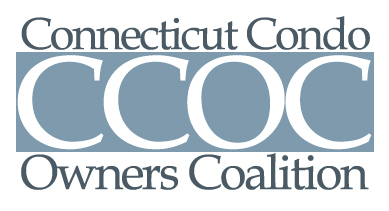Ct Condo Rules Require Many Documentations In January
January, for most condominiums, is the month in which records are assembled for tax filings and the beginning of a new budget year. January is also the month when the condominium association must take care of a few legal matters.
Under Section 47-270(e) of the Connecticut General Statutes, the association must file a certificate with the clerk of the town in which the condominium is located. This certificate identifies the person to contact for a resale package. The certificate must contain the name and address of an officer or the managing agent who can be contacted. If the name or address of the officer or agent changes during the year, the association must file a new certificate with the town clerk.
January is the month for preparing the Cert 103. Certain services to real property are only subject to sales taxes if the services are provided to income producing property. The same services provided to a person’s private residence are not subject to sales tax.
In a condominium, some units are owner occupied and some units are owned by investors. Under Connecticut sales tax law, the condominium association only has to pay sales tax on those portions of the taxable services to common elements that are deemed to be provided to the investor units. The association completes a Cert 103 in January, to establish for that year, the percentage of units that are not owner occupied. The association gives the Cert 103 to the vendors providing the services, who then charge sales tax only on the percentage of the price attributable to the investor units. Without the Cert 103, the vendor must charge sales tax for all taxable services provided to the common elements. A principal officer of the association signs the Cert 103. The information must be accurate as of the first day of the year and the association must be able to provide proof of that information for up to six years.
Finally, if the condominium is an over 55 community, the Department of Housing and Urban Development requires that the association confirm the ages of residents every two years. January is a good time to survey the ages of residents. If the condominium does not enforce the age restrictions and can not provide proof of the ages of residents, the condominium could be sued for discrimination.
At least 80 percent of the units in a senior living community, whether for purchase or for rent, must have one occupant who is 55 years old or older. This survey requires that each occupant must show identification such as a drivers license, military ID, state-issued ID, immigration card, passport or birth certificate. The community should retain copies of the survey.
Attorney Patricia A. Ayars of Glastonbury is a member of the Connecticut Condo Owners Coalition advisory committee.






Mr. George Gombossy, yesterday, I send you a note about Condo Rules Could you send me the newest Rules Thank You Please reply to gerard5000@att.net Thanks
Is the certificate required to be filed w/ the Town Clerk in January under 47-270(e) a particular form or in a particular format? Something that can be downloaded?
Also, if the association has fewer than twelve units does the referenced certificate need to be filed?
thanks